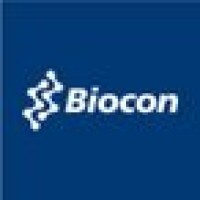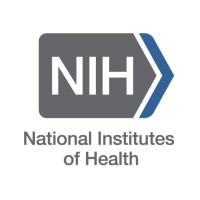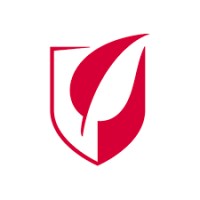Company Cyber Security Posture
NANA
NA Company Details
NA
NA
NA
NA
NA
NA
Scan still pending
NA
NA
Between 200 and 800
This score is AI-generated and less favored by cyber insurers, who prefer the TPRM score.
 NA Global Score
NA Global Score.png)

Company Scoring based on AI Models
| Model Name | Date | Description | Current Score Difference | Score |
|---|---|---|---|---|
| AVERAGE-Industry | 03-12-2025 | This score represents the average cybersecurity rating of companies already scanned within the same industry. It provides a benchmark to compare an individual company's security posture against its industry peers. | N/A | Between 200 and 800 |
Company Cyber Security News & History
| Entity | Type | Severity | Impact | Seen | Url ID | Details | View |
|---|
Company Subsidiaries

NA
Access Data Using Our API

Get company history
.png)
NA Cyber Security News
Top 10 Tech Companies to Work for in Santa Rosa in 2024
Discover the top 10 tech companies to work for in Santa Rosa, California in 2024 and explore their workplaces, opportunities, and benefits.
Broadcom Inc.
Broadcom's evolution from HP to a global tech leader. HP origins. The organization known today as Broadcom began as a division of Hewlett-Packard in 1961. The ...
Datanomy Inc. Welcomes Splunk Executive Brad Myers to Board of Directors
Datanomy Inc., a prominent player in data services-led product innovation, has announced a significant addition to its leadership team.
Securing Software-Defined Vehicles
Automakers and their key suppliers must comply with UN R155 regulations while the ISO/SAE 21434 standard is a set of guidelines. Both must go ...
Proofpoint appoints Nelson Soon to VP role in Asia Pacific & Japan
Soon's new role is pivotal for Proofpoint as the company looks to leverage his extensive industry expertise and leadership skills to drive ...
Review: Engineering-grade OT security: A manager’s guide
Engineering-grade OT security is aimed at cybersecurity and engineering experts, but also non-technical readers who want to know more about OT ...
Engineering-Grade Cybersecurity for Small and Large Water Systems
In this webinar, we look at the numbers - how cyber-attacks take down water systems. We introduce Cyber-Informed Engineering (CIE) with examples from safety, ...
Top 25 Women Leaders in Cybersecurity of 2019
Kara Sprague is the Senior Vice President and General Manager of F5's Application Delivery Controller (ADC) business unit, responsible for the ...
Surveillance Technology at the Fair: Proliferation of Cyber Capabilities in International Arms Markets
The Offensive Cyber Proliferation primer reframes the narrative of cyber capability proliferation to be more in line with the life cycle of ...

NA Similar Companies

Syneos Health
Syneos Health® is a leading fully integrated biopharmaceutical solutions organization built to accelerate customer success. We translate unique clinical, medical affairs and commercial insights into outcomes to address modern market realities. We bring together a talented team of professionals w

Talecris Plasma Resources
Talecris Plasma Resources was established in 2006 to ensure a reliable and safe supply of plasma for the production of premium protein therapies that help save and enhance lives worldwide. Today, we are a nationwide network of 69 plasma collection centers guided by our unwavering commitment to safet

Biocon
Biocon: Enhancing Global Healthcare Biocon Limited, publicly listed in 2004, is India's largest and fully-integrated, innovation-led biopharmaceutical company. It is an emerging global biopharmaceutical enterprise serving customers in over 120 countries. Driven by a vision to enhance global healthc
ICON plc
Since our foundation in Dublin, Ireland in 1990, our mission has been to help our clients to accelerate the development of drugs and devices that save lives and improve quality of life. We do this by delivering best in class information, solutions and performance, with an unyielding focus on quality

The National Institutes of Health
NIH is the only agency of its kind. We impact the health of the country and the world through unique and innovative medical research. Did you know that NIH is the largest public funder of biomedical research in the world, investing more than $32 billion a year to enhance life, and reduce illness an

Gilead Sciences
At Gilead, we set – and achieve – bold ambitions to create a healthier world for all people. From our pioneering virology medicines to our growing impact in oncology, we're delivering innovations once thought impossible in medicine. Our focus goes beyond medicines, and we also strive to remedy healt

Frequently Asked Questions
Explore insights on cybersecurity incidents, risk posture, and Rankiteo's assessments.
NA CyberSecurity History Information
How many cyber incidents has NA faced?
Total Incidents: According to Rankiteo, NA has faced 0 incidents in the past.
What types of cybersecurity incidents have occurred at NA?
Incident Types: The types of cybersecurity incidents that have occurred include .
Additional Questions
What Do We Measure?
















Every week, Rankiteo analyzes billions of signals to give organizations a sharper, faster view of emerging risks. With deeper, more actionable intelligence at their fingertips, security teams can outpace threat actors, respond instantly to Zero-Day attacks, and dramatically shrink their risk exposure window.
These are some of the factors we use to calculate the overall score:
Identify exposed access points, detect misconfigured SSL certificates, and uncover vulnerabilities across the network infrastructure.
Gain visibility into the software components used within an organization to detect vulnerabilities, manage risk, and ensure supply chain security.
Monitor and manage all IT assets and their configurations to ensure accurate, real-time visibility across the company's technology environment.
Leverage real-time insights on active threats, malware campaigns, and emerging vulnerabilities to proactively defend against evolving cyberattacks.




